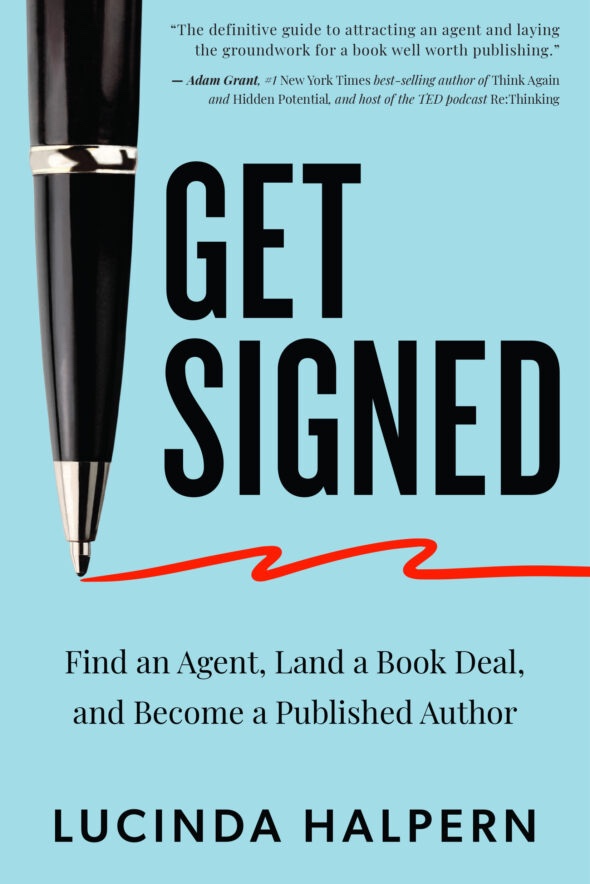Search
My Book is on Submission with Publishers. Now What?
You’ve gone back and forth for months creating the perfect book proposal—making sure every argument you’ve made is unassailable, that every indent, line break, and page break is perfectly positioned, and that every t is crossed and i dotted. Or perhaps you’ve been toiling away on a novel, and after months (or years) of developing it, you’ve decided it’s time. You’ve sent your baby out into the world and into the query portals of agents.
The waiting is HARD. For some, it’s the hardest stage. Below are some useful activities that will help you as you await the verdict.
Productive Activity #1: Focus energies on your online presence
The very first thing someone considering your book will do after reading your query is look you up online. What you want them to find is substantial information around you—whether in regards to your writing, your story, your brand, or your work. They’ll also want to see an active social media presence, one that shows engagement from a number of people. For nonfiction authors, the bar for social media following is higher than ever—we like to see a minimum of around 10,000 highly engaged followers or subscribers on a single platform. Even if you’re nowhere near this number, the single best thing you can do is continue to build your online credibility while your book is on submission.
Are you a journalist?—Have a Wikipedia page. Blogger?—Encourage your fan base to show their support on social media at this critical time. Perhaps you’re a novelist?—Building even a simple personal website can showcase your writing clips and offer a sense of who you are as a person.
Productive Activity #2: Read comparable titles as research or inspiration for the book you plan to publish
The writers we work with, and who succeed in getting book deals, share something major in common: conviction in their ideas. For these writers, where there’s a will there’s a way, and even if a given agent or publisher doesn’t share their view, they’re going to write the book regardless—the research is just that fascinating, or the process is just that rewarding. Once your proposal or manuscript is with an agent and out of your hands, why not begin collecting notes, or reading those comparable titles if you haven’t already to serve as research or inspiration in crafting your own book? Treat this waiting time as an opportune moment to further educate yourself in the marketplace and more critically understand the gap your book can fill.
To go the extra mile in your research, keep a sharp eye on publishing news outlets like Publishers Marketplace. Take note of the trends you see in categories of books relevant to your own work. Do these trends help make the case that your book is particularly timely?
Productive Activity #3: Be patient and fill your time actively
It’s understandable that the silence can be deafening—but silence isn’t always a bad thing. Given the number of people at an agency who need to weigh in and run your work up the flagpole as discussed in this recent interview, before an offer can be made, even a very interested agent could be getting second reads from their colleagues or discussing the positioning and potential with their team. Also know that it’s highly unlikely you’ll receive an offer of representation on your first query. Not receiving an offer on the first round doesn’t mean that you won’t receive one on the second, and as mentioned in our latest newsletter (not subscribed? Click here to sign up!), we always recommend querying in rounds so you can incorporate any feedback from the first round to improve your chances for later rounds.
While all these cogs turn behind an agency’s doors, engage in activities that will help your book’s success—possibly this is going on a local radio or television show, penning a post for a widely read journal or blog, securing a blurb for your book, or any number of things individual to your project that aren’t outlined above.
Productive Activity #4: Constructively follow up, at the right time
While some agents are more in touch than others (guilty!), the two week mark is generally a good moment to check in with the agent or publisher you’re querying. When you do, offering something constructive, such as an article recently published or in which you were recently prominently featured, a podcast interview, a big news story demonstrating timeliness for your idea, a recent deal of that agent’s or publisher’s that is related, could all be a useful push. Much like our author Susan McPherson says, connecting is really about doing or offering to be of help. Effective relationship building is rarely, if ever, about a unidimensional ask for help.
In absence of having those updates to share, you could go for something very personal and heartfelt: “as you’re the agent of [x comparable title], a novel that significantly influenced my own writing, any reactions you’ve had thus far would be especially meaningful to me…” continuing to say that your utmost wish would be a home with this particular agent.
To be sure, you shouldn’t write this first choice letter to everyone; only to those for whom it really applies. However you decide to follow up, be polite, be succinct, and most importantly, do your best to showcase what makes you and your idea special.
Have we addressed every submission question you’re wondering about? If we haven’t, please follow and DM us on social, and we’re happy to offer further insights!
To subscribe to Lucinda Literary’s monthly newsletter, click here:







